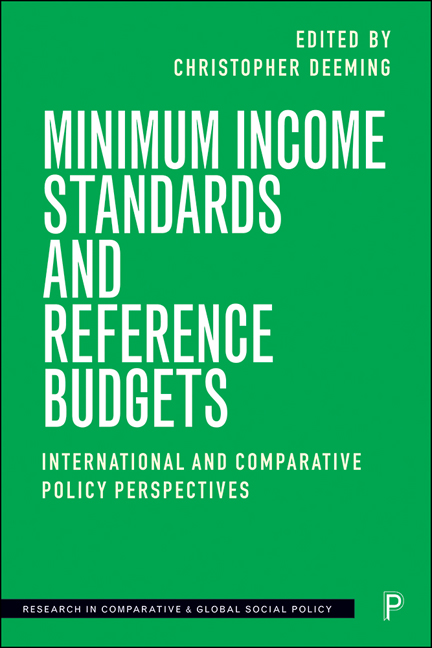7 - A South African Pilot of the Minimum Income Standards Approach
Published online by Cambridge University Press: 12 March 2021
Summary
Introduction: what was the purpose of the South African Minimum Income Standards pilot study?
The Minimum Income Standards (MIS) approach was pioneered in the UK (see Davis et al, 2018), and although it has been shown to work well in this and other high-income countries (e.g. France [Gilles et al, 2014; Gelot, 2016] and Portugal [Ferreira Correia et al, 2016]), its applicability in a developing country context has until relatively recently been unexplored. South Africa is one of the most unequal countries in the world (Sulla and Zikhali, 2018), with entrenched racial and spatial divisions that are proving difficult to break down, resulting in concurrent yet very different standards of living. The starting point for the South African pilot of the MIS approach, as in all countries where the MIS approach has been applied, was a simple but fundamentally important question: what exactly do people need in order to have an acceptable standard of living? Understanding what standard of living the public regard as acceptable or decent is clearly important for government, businesses, civil society, trade unions and other organisations. Indeed, the South African government's National Development Plan provides ‘a framework for the adoption of a minimum standard of living by society’ and acknowledges the need for a clear definition of what this entails (National Planning Commission, 2014).
The aim of the pilot, presented here, was to ascertain whether South Africans can reach agreement both about how a decent standard of living is defined and what constitutes this decent standard of living – or how the agreed living standard is described. Consequently, it was important to explore whether the MIS approach was viable in this context using a small pilot study in the first instance. This chapter discusses some of the methodological challenges that arose during the design and implementation of the pilot which required modifications to the MIS approach as implemented in the UK, to better fit the South African context. The findings of the pilot study are then presented alongside recommendations for an expanded nationwide study.
The MIS pilot in South Africa was not the first attempt to explore the idea of consensus around socially determined living standards.
- Type
- Chapter
- Information
- Minimum Income Standards and Reference BudgetsInternational and Comparative Policy Perspectives, pp. 97 - 108Publisher: Bristol University PressPrint publication year: 2020



